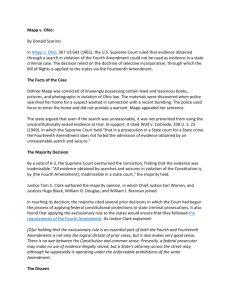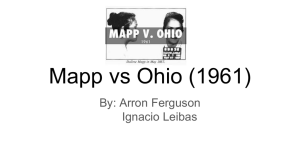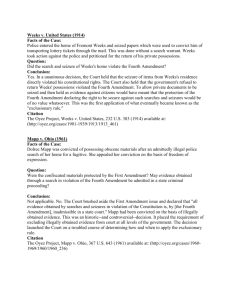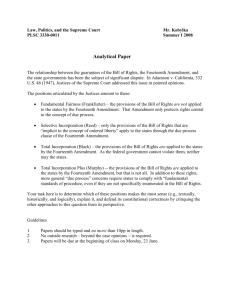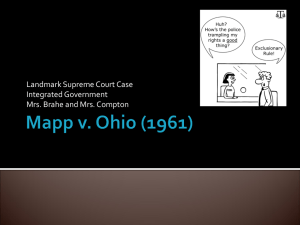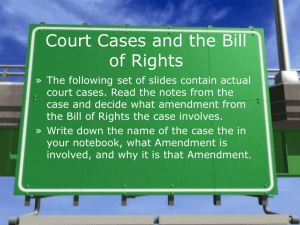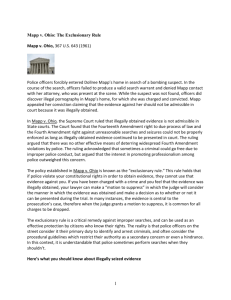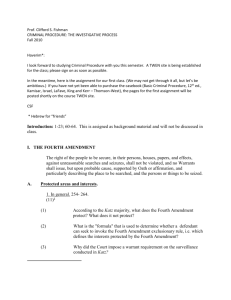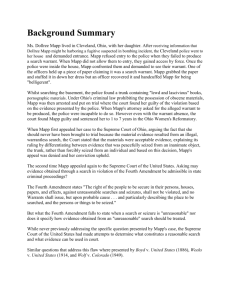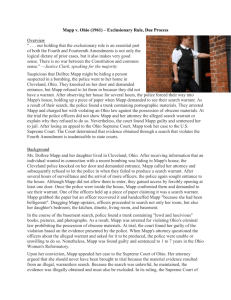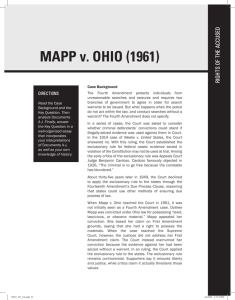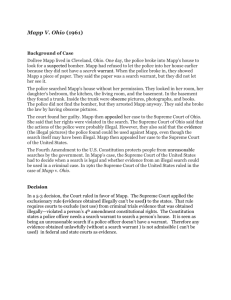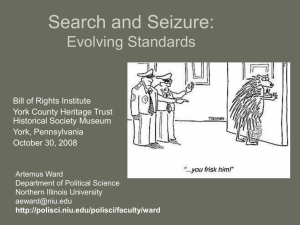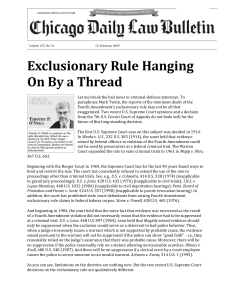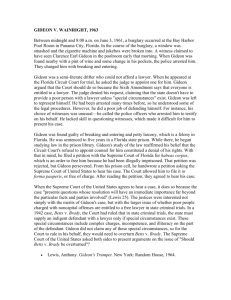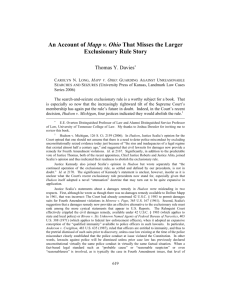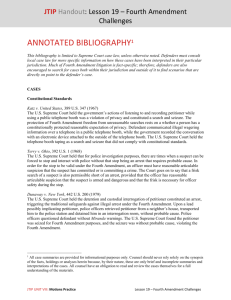Mapp v. Ohio 367 US 643 (1961)
advertisement
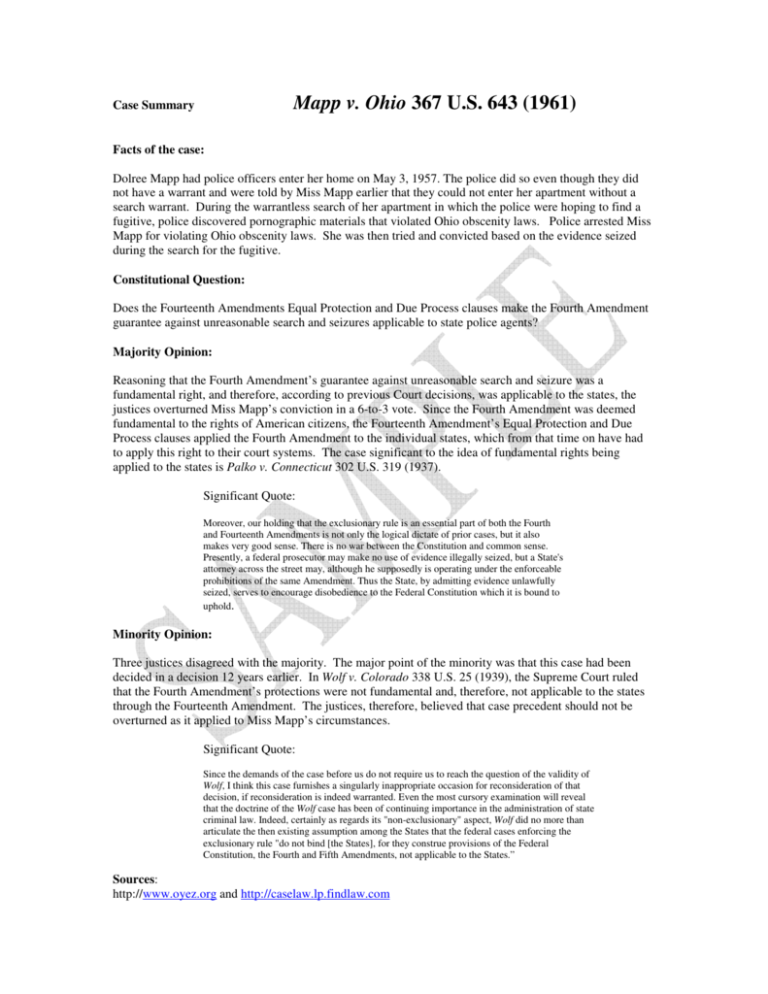
Mapp v. Ohio 367 U.S. 643 (1961) Case Summary Facts of the case: Dolree Mapp had police officers enter her home on May 3, 1957. The police did so even though they did not have a warrant and were told by Miss Mapp earlier that they could not enter her apartment without a search warrant. During the warrantless search of her apartment in which the police were hoping to find a fugitive, police discovered pornographic materials that violated Ohio obscenity laws. Police arrested Miss Mapp for violating Ohio obscenity laws. She was then tried and convicted based on the evidence seized during the search for the fugitive. Constitutional Question: Does the Fourteenth Amendments Equal Protection and Due Process clauses make the Fourth Amendment guarantee against unreasonable search and seizures applicable to state police agents? Majority Opinion: Reasoning that the Fourth Amendment’s guarantee against unreasonable search and seizure was a fundamental right, and therefore, according to previous Court decisions, was applicable to the states, the justices overturned Miss Mapp’s conviction in a 6-to-3 vote. Since the Fourth Amendment was deemed fundamental to the rights of American citizens, the Fourteenth Amendment’s Equal Protection and Due Process clauses applied the Fourth Amendment to the individual states, which from that time on have had to apply this right to their court systems. The case significant to the idea of fundamental rights being applied to the states is Palko v. Connecticut 302 U.S. 319 (1937). Significant Quote: Moreover, our holding that the exclusionary rule is an essential part of both the Fourth and Fourteenth Amendments is not only the logical dictate of prior cases, but it also makes very good sense. There is no war between the Constitution and common sense. Presently, a federal prosecutor may make no use of evidence illegally seized, but a State's attorney across the street may, although he supposedly is operating under the enforceable prohibitions of the same Amendment. Thus the State, by admitting evidence unlawfully seized, serves to encourage disobedience to the Federal Constitution which it is bound to uphold. Minority Opinion: Three justices disagreed with the majority. The major point of the minority was that this case had been decided in a decision 12 years earlier. In Wolf v. Colorado 338 U.S. 25 (1939), the Supreme Court ruled that the Fourth Amendment’s protections were not fundamental and, therefore, not applicable to the states through the Fourteenth Amendment. The justices, therefore, believed that case precedent should not be overturned as it applied to Miss Mapp’s circumstances. Significant Quote: Since the demands of the case before us do not require us to reach the question of the validity of Wolf, I think this case furnishes a singularly inappropriate occasion for reconsideration of that decision, if reconsideration is indeed warranted. Even the most cursory examination will reveal that the doctrine of the Wolf case has been of continuing importance in the administration of state criminal law. Indeed, certainly as regards its "non-exclusionary" aspect, Wolf did no more than articulate the then existing assumption among the States that the federal cases enforcing the exclusionary rule "do not bind [the States], for they construe provisions of the Federal Constitution, the Fourth and Fifth Amendments, not applicable to the States.” Sources: http://www.oyez.org and http://caselaw.lp.findlaw.com
